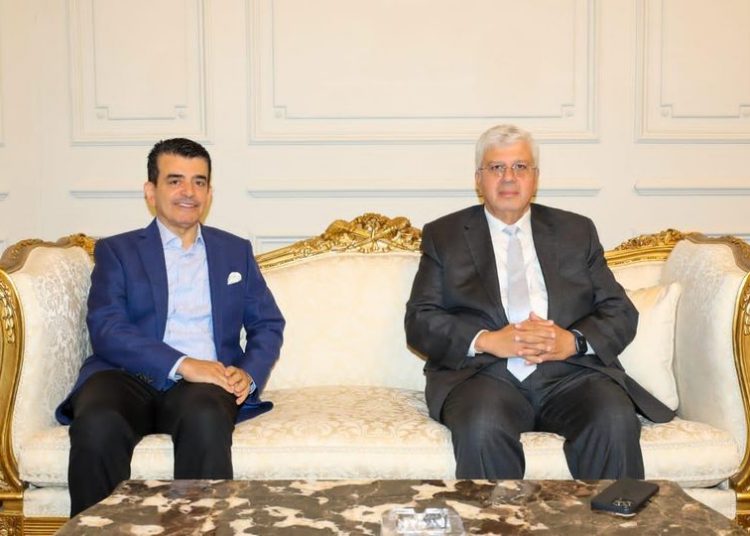Egypt’s Minister of Higher Education and Scientific Research Ayman Ashour on Sunday met with Salim M. Al-Malik, Director-General of the Islamic World Educational, Scientific and Cultural Organisation (ICESCO).
The meeting came on the sidelines of a function to launch ICESCO Year of Youth, organised in co-operation with the Ministry of Higher Education and Scientific Research in the New Administrative Capital.
The two sides discussed ways to boost co-operation with ICESCO in various fields.
The minister appreciated the pivotal role of ICESCO in spreading science and culture across the globe, noting that Egypt’s hosting of this major event came within the framework of its national strategy for higher education and scientific research 2030 to build the capabilities of young people, and give them the opportunity to play their pivotal role in sustainable development.
He stressed that sustainable development can only be achieved by investing in talented and creative human resources.
The minister noted that the Egyptian state attaches great importance to advancing the role of youth in development.
The political leadership is keen to offer all means of support to youth as they are the main engine of comprehensive development, Ashour said.
For his part, Al-Malik hailed Egypt’s achievements in various fields, notably scientific one, thanking President Sisi for sponsoring youth.
He said that the organisation is implementing many ambitious programmes and projects geared towards building the capacities of young people, in co-ordination with the National Commissions for Education, Science and Culture in member states. This is part of the Organization’s vision and strategic orientations which place strengthening and preserving the national identity of young people at the top of its priorities, seek to motivate them to innovate in the fields of modern technology, artificial intelligence applications and the metaverse. ICESCO’s vision also seeks to develop young people’s skills to keep pace with the requirements of tomorrow’s professions and urges universities in the Islamic world to develop their curricula to train young people capable of keeping pace with the rapid global changes.






Discussion about this post